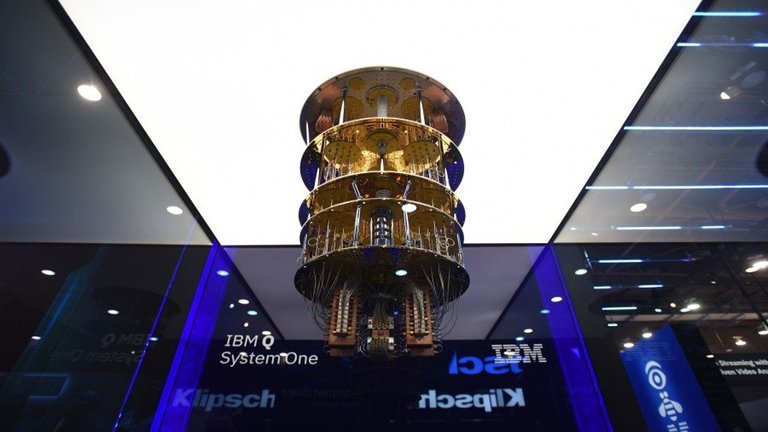As you might have heard, on January 8th IBM unveiled IBM Q System One which is the worlds first integrated universal approximate quantum computer. In light of this development, what types of innovations can we expect quantum computing to bring to the world? But before we get ahead of ourselves what exactly makes a quantum computer so special?

The Quantum Revolution
At the most basic level, classical computers complete their calculations using bits. Each bit can take on the value of either a “1” or “0” and long strings of these bits can be used to represent everything the computer processes. For example, in the right context a number in binary could represent a specific number, letter, or color. If you take a look at the visual below, each additional bit doubles the total number of combinations for your computer to process.
Thanks to quantum mechanics, quantum computers will take advantage of qubits which can be both a 1 and 0 simultaneously. While a classical computer would need to calculate each combination individually, quantum computers will have the added capability of testing all of them simultaneously.

In terms of the total number of calculations, a simple 4 qubit computer would be 16 times as efficient than a classical four-bit computer. Once we learn how to fully harness their power, a quantum computer with just a few more qubits would dramatically outpace even the world’s fastest supercomputers. In fact, experts in the Quantum Computing Architecture Lab have estimated how with just over 100 qubits scientist with have the capabilities of modeling every atom in the known universe!

Real World Benefits
But unless you’re a scientist, why should you care about quantum computing? Well for starters he is an example how quantum computing will revolutionize the medical field.
In a recent article from the Missouri State Medicine Association, their team discusses how they wish to implement quantum computers to assist in cancer treatment. For starters, their proposed quantum MRI machines will be better equipped to collect and process data for their patients.

According to a quick internet search, today MRI scans can range anywhere from 15 to 90 minutes while it can take an additional day for this data to be processed and evaluated! To improve their evaluations, the team has also begun writing new machine learning algorithms for quantum computers. Once the correct tools are available, these algorithms will not only run more quickly, they will identify cancers in their earliest stages of development. Finally, their quantum computer could quickly simulate hundreds of individualized treatment plans to eliminate the cancers as effectively and safely as possible.
For another example, companies like Google are working to take advantage of quantum computing to guide their self-driving cars. For starters one day their quantum algorithms could easily handle the multitudes of data needed to operate safely. Additionally, they anticipate their technology will lead them towards new encryption methods which could be implemented to protect their cars from hackers.
Work Cited
[1] Scherrer, J. F. (2018). The Potential of Quantum Computing and
Machine Learning to Advance Clinical Research and Change the Practice of Medicine. Missouri medicine, 115(5), 463-467.
[2] [Talks, T. (2017, November 16). Introduction to Quantum Computing | Koen Bertels |
TEDxAntwerp]

Quantum computers will change everything dramatically. Even current BTC and Steem systems will be notoriously outdated after that in terms of cryptography security. That said, quantum computers have the same power like conventional computer. "Power" in Computer Science Theory means they recognize the same language, meaning, they can try to solve the same set of problems. Theoretical limits still stand. The main practical difference is the speed of performance since quantum computers will do it much faster.
Thanks for the clarification!
However, I believe there will be some cases where quantum computers can implement unique algorithms which can't easily be replicated on a classical computer. For example, take a look at Shor's algorithm. While we certainly can program a classical computer to run this algorithm, it would require additional steps to complete while with a quantum computer entanglement allows us to relate the individual qubits in the same calculations.